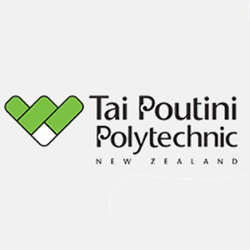
Mā pango mā whero ka oti te mahi: Digging for Māori values at Te Tai o Poutini Polytechnic
Status
Completed: 9 June 2015
Project Details
A project completed in 2015, undertaken by Tai Poutini Polytechnic, to investigate the significance of Māori frameworks on the retention and completion rates of Māori students within Tai Poutini Polytechnic’s Digger Schools.
Aims:
The main aims of the project were to:
- explore the factors underpinning higher Māori participation and completion rates at Tai Poutini’s Digger Schools than the institutional average
- investigate whether the higher Māori participation and completion rates at the Digger Schools may be due to high alignment with Māori values
- explain why and how Māori frameworks, models and theories work so well within an industry training setting.
Methodology:
The project methodology that was used involved:
- a literature review on conceptual frameworks/qualitative methods and models utilising tikanga and mātauranga Māori
- a grounded theory approach was used, which would allow for the tikanga of the classroom and its links to retention to be the principal driver for the development of any theory or model
- qualitative data (student interviews and observational field notes) were analysed to provide evidence of how cultural values might manifest in the learning environment.
Team

Tonga Karena
Project Leader
Tai Poutini PolytechnicDr Christine Fenton
Focus ConsultancyStatus
Funding
$85,000.00 (excl GST)
Key Findings
The key findings from the project were:
- Analysis of the data indicated that there were three main concepts/values from te ao Māori (the Māori world) that were clearly manifested in this educational environment. These main values were: manaakitanga – the expression of hospitality and generosity; whanaungatanga – the expression of the importance of relationships: and whakapapa – the importance of connection to family.
- Te reo Māori was definitely used by those students who had a grasp of te reo when greeted or interviewed but was not considered in itself to be a contributing factor towards retention.
- Encouraging a connection to family and to the group underpinned by the qualities of connectedness and sustainable relationships appears to have promoted and supported the high success of Māori students in this particular tertiary setting.
- Although this study indicates that Māori values were clearly present in the education environment studied, this does not in itself indicate that they were solely or directly responsible for the educational success of these students.
- The classroom environment studied had definite signifiers of Maori concepts/values in action in particular, manaakitanga and whanaungatanga. The main signifiers were: preparedness and readiness of the class to receive “manuhiri” or visitors; collective responsibilities of hospitality and comforting of visitors were shared; teacher/student relationships in a relatively informal situation were genuine and respectful; social alienation of individuals was not evident – all students appeared engaged and comfortable; teacher and peer mentoring were qualities that were embraced and appreciated; ethnic, cultural and gender difference were qualities that were respected and understood; self-awareness and self-responsibility were values that derived from the journey and goals of the collective; social hierarchies sourced outside of the classroom weren’t as important as the social functioning of the classroom; goals of learning and qualifications were clearly defined and attached to improved well-being; and teaching and learning strategies were structured to reflect the social and educational diversity of the classroom.
Key Recommendations
The key recommendations from the project related to future research:
Implications for teaching, learning and pastoral care | More work is needed to understand the implications these findings have for teaching, learning and pastoral care in the tertiary teaching environment.
Different learning contexts | Further work needs to be done to see if these values can be translated and transferred into different learning contexts, with a view to improving the retention rates of Māori students in other subject areas, and ultimately therefore improving Māori success in tertiary education.
Transferability of concepts | Further study would confirm the transferability of these concepts within other educational environments, across discipline areas and irrespective of ethnicity. The concepts of caring, sharing and peer support are not new to education, but these findings provide a new empirical framework with which to engage in new conversations about retention.
A research report prepared by Tonga Karena and Christine Fenton.
(PDF, 1.39 MB, 24-pages).
- 25 June 2015